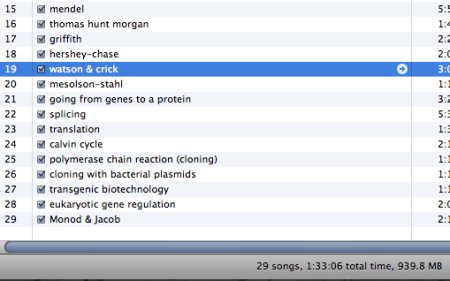Caltech Calculus
This is the first post in the finals diaries series, which follows a group of students through their quest to improve their study habits in time for spring exams. We start with Travis, a freshman physics major from Caltech. In May, he faces a brutal multivariate calculus exam. This leaves him a little less than a month to toss out his existing habits, which he candidly describes as “less than stellar,” and embrace a more efficient academic lifestyle.
Plan A
As with all of my volunteers, I asked Travis to describe his current plan for preparing for this test. He replied:
It will boil down to taking a couple of weeks before finals and figuring out what I don’t know, trying to brush up on what I may have forgotten, and doing some example problems.
This, of course, is exactly the type of vagueness that drives students to last minute scrambles and incomplete preparation. Luckily, Travis still has time to change his ways.




